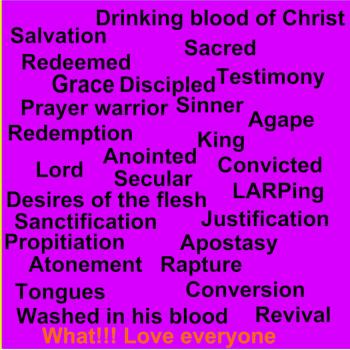 Introduction
Introduction
On Ash Wednesday, millions of Christians around the world engage in the ancient ritual known as "the imposition of ashes." This service marks the beginning of Lent, the forty-day period, not counting Sundays, between Ash Wednesday and Easter. The practice of using ashes as a sign of penitence goes back to the Hebrew people (Jon. 3:6; Mt. 11:21). Christian use of the ashes goes back to the 2nd century, and it was widely practiced by the 5th century.
Ash Wednesday begins the forty-day journey of Lent between Ash Wednesday and Easter. It sets the believer on a sobering time of self-examination and repentance, to wait upon and prepare for the renewal given by God's Spirit in the death and resurrection of Jesus Christ.
A typical Ash Wednesday service includes the invitation for each person to come forward to have the sign of the cross marked on his or her forehead. We are to be reminded that we, like the palms that have been burned to make the ashes, will someday turn to dust. As your forehead is marked with ashes, you will hear these words from Genesis 3:19—"Remember you are dust and to dust you will return."
Meditation
A Presbyterian pastor from Pennsylvania tells of how every year after Ash Wednesday, he puts the brass bowl containing the leftover ashes on his office desk. A church member, stopping by to chat, looked into the bowl and asked in horror, "Whose ashes are you keeping on your desk?" He answered, "All of ours!"
Ashes on our forehead remind us that human life has limits, that it comes to an end, that we all die. The ashes speak of the virtue of humility, of knowing our human limits and knowing we need God. Humility comes from humus, the Latin word for earth. The ashes are symbols of the earth, and a reminder that we are all creatures of the earth.
A young man who had been to an Ash Wednesday service recalls going to the grocery store afterward and a young girl pulled away from her mother and ran up to stand in front of him and inform him: "You've got dirt on your face." It was then, says the young man, that he realized what Ash Wednesday was all about.
The famous poet John Donne used to sleep in a coffin to remind himself of the same thing. That's a tad morbid for my taste. I'll stick to my bed, thank you, but the ashes from my forehead may smudge my pillowcase.
Ashes remind us of our mortality, but why ashes in the sign of a cross? Why not a heart for Valentine's Day, or our initials, maybe? Why a cross in ashes? The cross in ashes reminds us of human sin and the resulting injustice that is part of life. The cross reminds us that our innocent friend Jesus was abused and tortured and executed. Even on a somber evening like this one, the ashes in the shape of a cross remind us that the cross is not the last word—the resurrection lies beyond it.
Why be reminded of our human mortality and sin? To encourage us to fast from those attitudes and actions that drive a wedge between us and God and embrace those which bring us closer to God. The Pharisees had good intentions—to maintain the holiness of the people in the midst of foreign occupation. But Jesus, in Matthew 6:1-6, critiques their grandstanding public piety. Throughout the gospel, he challenges their definition of a holy table as one that excludes "unclean" people.
Purity laws regarding how and with whom one ate were part of the strategy of being a holy, set apart people. The Pharisees believed that avoiding social contact, especially the intimate act of eating with outcasts (prostitutes, certain foreigners, tax collectors, lepers) and engaging in ritual fasting, was pleasing to God. That is not the kind of fasting Jesus intended for his followers.
His ministry was imbued with the prophet Isaiah's depiction of what is pleasing to God:
Is not this the fast that I choose: to loose the bonds of injustice, to undo the thongs of the yoke, to let the oppressed go free, and to break every yoke? Is it not to share your bread with the hungry, and bring the homeless poor into your house? (Isaiah 58:6-7)
Recently a young pastor was invited to serve as an associate pastor at a church. The bulletin and newsletter advertised them as a welcoming church, and he decided to put it to the test. In collaboration with the senior pastor, he devised an experiment. The week before he was to be introduced as their new associate, he went to church, but dressed in old clothes, with a day's growth of beard and an old coat with holes in it. On the way out, one or two people smiled at him nervously, no one shook his hand, or really engaged him in conversation.
Then the next week, was the congregation in for a surprise!





